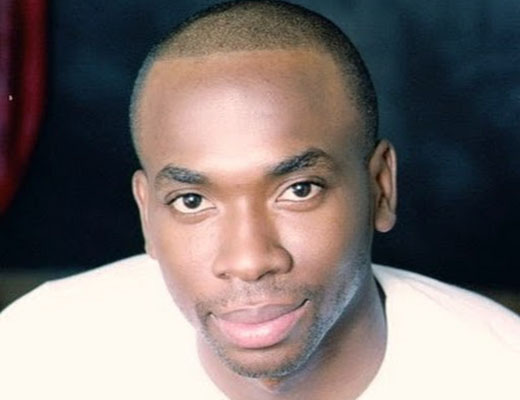Whether members of the profession like it or not, authors and novelists carry along with them a certain stereotype depending on one’s perspective: that introverted figure that spends countless hours in front of a computer removed from all human interaction – and they own a cat. Kern Carter, former HipHopCanada.com writer, makes no illusions to the individual he is. A former basketball hopeful turned writer, the Trinidadian-born Toronto resident fosters his story and ideas from life’s teachings, instead of a secluded corner. His first published book, Thoughts of a Fractured Soul, is a story of a family and the conflicts associated with life’s decisions and the mistaken choices that can have lasting effects, through the eyes of the protagonist, Corey Thomas. It’s just one step in many that represents a journey in Carter’s path towards providing a lasting impact through the written word.
THERE’S A VIDEO INVOLVING YOU AND YOU WENT ON TO SAY THAT ONE OF YOUR GOALS IN LIFE WAS TO BECOME A PROFESSOR AND PUBLISH A BOOK. FROM ITS LAUNCH TO NOW, HOW ARE YOU FEELING AFTER HAVING ACCOMPLISHED ONE OF THOSE GOALS? On one end it feels good. It is a milestone to actually get a book published, but that’s not really my goal. My goal is for it to be successful. So having it published is great, but my goal ultimately is to have it really be a success and to be the best author I can be and to be one of the better authors here in Canada.
NOW I’M SURE THE IDEA OF PUBLISHING A BOOK CAN BE DAUNTING AND SCARY IN A LOT OF WAYS. WHAT WERE SOME OF THE DIFFICULTIES YOU WENT THROUGH IN GETTING THOUGHTS OF A FRACTURED SOUL PUBLISHED? Yeah, it’s a long process. It’s something that you have to be really patient with, because there’s good days and bad days. The entire writing process can be very tedious. Finding the right story to tell was the hardest part. I always knew that I wanted to write a book, but when I started writing I didn’t know what I wanted to write about exactly. I didn’t want that to be an obstacle or a hindrance so I really just started to write about my life just so that I could have something on paper. Once I started finding what I kinda thought was a story, I then had that edited by one of my professors at university. He looked over every single page, corrected every one, and gave opinions and that really spearheaded the confidence for me to continue. Though the end product is only 70 pages that’s all that I felt it took to tell my story.
A PORTION OF THE BOOK MAKES IT EASY TO BELIEVE THAT THIS WAS BASED ON A REAL PERSON DUE TO THE DETAILS. IT DEALS WITH A LOT OF RELATABLE ISSUES. WHERE DID YOU GAIN THE INSPIRATION FOR THE MAIN CHARACTER COREY AND SOME OF THE OTHERS? The actual people are based on real people. I have two brothers as well and a single mother, along with a living grandmother. There’s some people obviously that are completely fictional, but the core characters were based on real people. What was made up came from all the interactions, so not everything that happened came from my personal life, other than the fact that I had a daughter as well. Really what I wanted to do was take observations I’ve seen in life. I really felt that a lot of people have all these big dreams, especially the millennial generation, we want to do so much and we just struggle with how to get that out, we struggle with work ethic, we struggle with our ambition, we struggle with expectations, we struggle with all those things in the midst of really wanting to do good and having an impact on the world. The other point I wanted to get out is that it doesn’t matter if you come from a good family or poor family; the keys to success rely in the decisions that you make. Many of these thoughts are reflected through the character Corey where he goes through different points in his life where he’s making impactful decisions.
YOU WERE A BASKETBALL HOPEFUL IN YOUR PAST AND GOT A SCHOLARSHIP FOR IT. BUT HERE YOU ARE AS A PUBLISHED AUTHOR. WHAT MADE YOU WANT TO MAKE THAT TRANSITION? I was always interested in writing. Ever since I was three I was reading really well. At five or six I wrote my first story when I was in third grade, like a Lion King type of story. So I was always reading, it’s just that athletics was just more popular; it was the easiest thing to do. You’d get instant feedback with athletics and I had a lot of potential with that so I rode that out as far as I could. Once that was over and it took me far where I got a free education and got to go to university, got to travel all over America. After that I knew what I wanted to do. I just got on it and made that transition.
WHAT DO YOU WANT READERS TO TAKE AWAY FROM THOUGHTS OF A FRACTURED SOUL? I struggle with this all the time. There’s so much, but if I had to take away one thing, I would say to monitor your decision-making. Bad decisions can really set you back in life for years. It can really affect your entire life like Corey in the book, the decision to have a baby as a teenager, it can affect your entire life and you can’t take those decisions back. I use that as an extreme example, because I want a physical representation of what a bad decision would look like and I want to send a correct representation of how you can overcome that bad decision or get through it and still make other good choices that get you to a different point. It’s consistent good decisions that can get you to a certain point, but only one bad decision can get you to a terrible point. The other half point I want people to take away from the book is that it’s okay to be ambitious, but there has to be some kind of work ethic behind that. People want to do so many things and be great at so many things, but if there is no work or moral ethic behind it then you end up being stagnant.
WRITERS HAVE BOOKS THAT OF COURSE INSPIRE THEIR WRITING, BUT WHAT ABOUT THE PEOPLE IN YOUR LIFE? Honestly I don’t have to look far for people that inspire me. People like Priya Ramanujam (Editor-in-Chief of Urbanology Magazine) inspired me to be honest, people like Tara Muldoon of The Forgiveness Project, she inspires me. There’s just people in the city doing some really amazing things that inspire me. There are a lot of writers out there, but those people where you can actually see their cultural impact that they’re having. To me that’s what I aspire to do. I aspire to have a cultural impact, I want my cultural impact to be huge and that’s what I aim for.
DO YOU HAVE ANY ADVICE FOR PEOPLE WHO WANT TO BECOME WRITERS IN A SOCIETY THAT EXPECTS MINORITIES TO BECOME SPORTS PLAYERS, OR HIP-HOP ARTISTS? That’s a really good question. I would have to tell them to do what you’re gifted at and don’t let anybody tell you otherwise. I actually wrote a blog and I just posted it and it’s called dealing with expectations. I just talk a lot about how other people’s expectations controlled how I saw myself, and the expectation of myself. As I grew up and matured and realized and kind of stopped caring about what my acquaintances thought, I created my own expectations for myself and I really became the kind of person that I wanted to become regardless of what people thought. Now when people have those expectations of me it’s because I created those expectations myself. People expect me to have to be well spoken, people expect me to write something that has no spelling mistakes and people really expected my book to be really great. I felt like if I put out a book that wasn’t good, people would be shocked by that. That’s because I created those expectations for myself by the way I carry myself, by the way I speak, by the way I kind of write and the expectations I put on that. I wanted to show people that I’m not just an athlete; I can do different things with my life and be successful.
WHAT’S THE END GOAL FOR YOU? My goal really is to touch the world and touch as many people as possible, so I just want to really emphasize that, that’s really my goal. This is only the beginning, this is not at all for me the end of it, I really want people to take this message or take this book and really feel a connection to it, and I’m just going to keep going.
Interview By. Noel Ransome






Comments are closed.